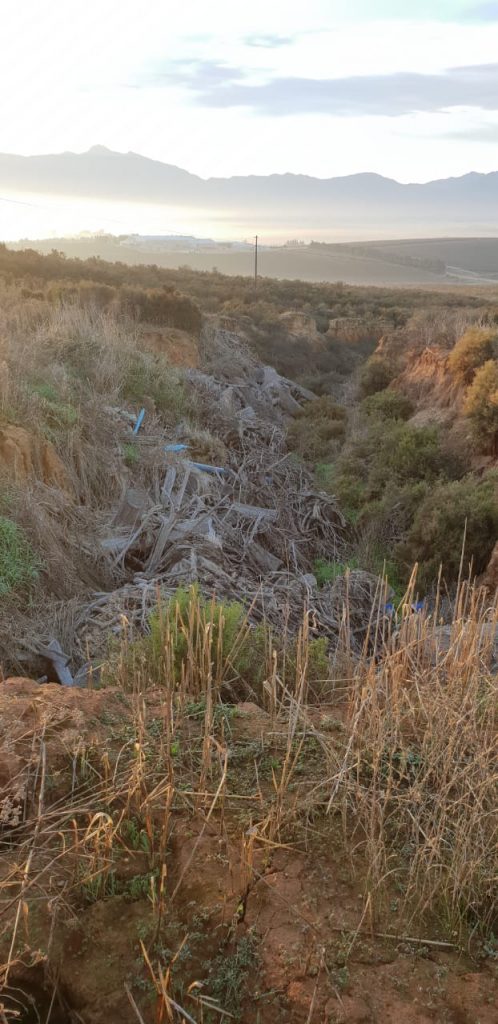
A long-term project to reverse soil erosion has been initiated at Bonathaba, SAFE’s citrus and grape farm near Wellington.
The project is in keeping with SAFE’s core policy of good management of the environment on all farms in the SAFE stable. Soon after the acquisition of Bonathaba, SAFE drew up plans to double the productive hectares of the farm and upgrade infrastructure as well as to review the existing environmental impacts – from natural causes and as a result of working the land.
According to Dries van Rooyen, SAFE General Manager of Farming Operations, soil erosion is one of the major environmental problems impacting on land and water resources in South Africa.
“Looking after the land is obviously critical to sustained production on any farm. This is why we have embarked on an initiative to fill existing dongas caused by historic erosion and take measures to prevent any more erosion at Bonathaba.
Although soil erosion is a natural process – after heavy rain, for instance – it is often accelerated by human activity, such as the clearing of vegetation, soil tillage or overgrazing.
Soil formation is a relatively slow process and therefore soil is essentially a non-renewable and a limited resource. Research shows that prolonged erosion causes irreversible soil loss over time, reducing the ecological and hydrological functions including the filtering, infiltration and water holding capacity of soil.
Globally agronomists agree that the cost of food production is increasing in many parts of the world due to erosion and loss of nutrients.
According to Dr. Hendrik Smith, conservation agriculture facilitator for Grain SA, Soil erosion not only involves the loss of fertile topsoil and reduction of soil productivity but is also coupled with serious off-site impacts related to increased mobilisation of sediment and delivery to rivers, causing siltation and the pollution of South Africa’s water resource.
“At Bonathaba we have deployed a number of measures, including filling dongas with building rubble, preventing water flow by filling eroded areas with vegetation from clearing and, of course, taking measures to control flood water damage,” said Dries.
“Looking after the land is in the long-term interests of SAFE, but also in keeping with our philosophy of taking care of the environment that we depend upon for the production of our fruit and the profitability of the company.

